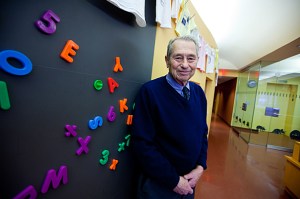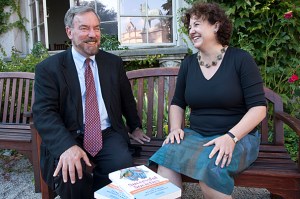Tag: Psychology
-
Arts & Culture
How to Unspoil Your Child Fast: A Speedy, Complete Guide to Contented Children and Happy Parents
Nearly 95 percent of parents think their own children are overindulged; now Bromfield, a clinical instructor in psychology in the Department of Psychology, lays down rules — “take back the power!” — to parenting, the hardest job in the world.
-
Campus & Community
Brendan Arnold Maher
At a Meeting of the Faculty of Arts and Sciences on April 6, 2010, the Minute honoring the life and service of the late Brendan Arnold Maher, Edward C. Henderson Professor of the Psychology of Personality, Emeritus, was placed upon the records. Maher’s scholarship centered on the complex theoretical and empirical problems surrounding human psychopathology.
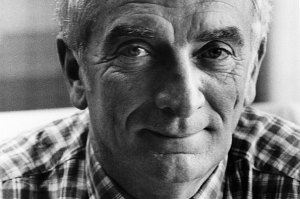
-
Health
Figuring out suicidal behavior
Matthew Nock is a new professor of psychology at Harvard who uses scientific research to try to determine which medical treatments help to prevent suicide.
-
Arts & Culture
How to get happy
Former Harvard President Derek Bok and his wife Sissela, a Harvard fellow, discussed their recent books on happiness in a discussion at the Harvard Graduate School of Education.

-
Campus & Community
NARSAD awards professors for breakthrough schizophrenia research
Associate Professor of Psychiatry Marc J. Kaufman and Associate Professor of Psychology Dara Manoach, both of Harvard Medical School, are among 42 innovative researchers awarded NARSAD 2010 Independent Investigator grants for schizophrenia research.
-
Health
What’s right for me?
In a new study, Harvard scientists find that humans can make difficult moral decisions using the same brain circuits as those used on more mundane choices such as money or food.

-
Arts & Culture
A life of transition
A new exhibition at Harvard’s Houghton Library explores the life of philosopher William James.
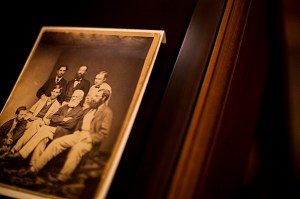
-
Science & Tech
Inklings of suicide
Two new computerized tests, developed at Harvard, show promise in predicting patients’ risk of attempting suicide.

-
Science & Tech
How touch can influence judgments
Researchers find ways in which tactile sensations appear to influence social judgments and decisions in everyday life.
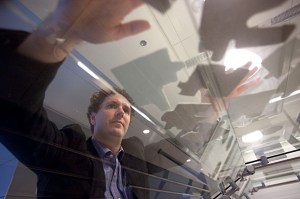
-
Campus & Community
Sherry Turkle to give centennial year Lowell Lecture May 14
Sherry Turkle, founder and director of the Massachusetts Institute of Technology Initiative on Technology and Self, will give this centennial year’s Lowell Lecture, titled “The Tethered Life: Technology Reshapes Intimacy and Solitude,” on May 14 (8 p.m., Lowell Lecture Hall), hosted by the Harvard University Extension School.

-
Arts & Culture
What makes a life significant?
A diverse Harvard panel marks the 1910 death of William James, celebrates his life, and revisits his famous question.
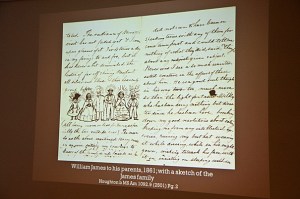
-
Campus & Community
Steven Pinker wins George A. Miller Prize in Cognitive Neuroscience
Steven Pinker, the Johnstone Family Professor of Psychology in the Department of Psychology, was named this year’s winner of the George A. Miller Prize in Cognitive Neuroscience, presented by the James S. McDonnell Foundation.
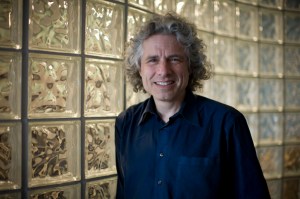
-
Campus & Community
Happiness is…
Which would make you happier: winning the lottery, or losing the ability to walk? It may seem like a no-brainer, but Daniel Gilbert, a psychology professor at Harvard University, says the answer may surprise you.
-
Arts & Culture
Addiction: A Disorder of Choice
A sobering book, sure to draw ire: This psychologist posits that addiction is voluntary.By analyzing buckets of research, Heyman offers insight on how we make choices, and how we can stop ourselves from going too far.
-
Science & Tech
McLean launches coaching institute
With a $2 million gift from the Harnisch Foundation, Harvard-affiliated McLean Hospital recently launched the Institute of Coaching to support coaching-related research, practice, and education.
-
Science & Tech
To tell the truth
Harvard University study suggests that the pain of torture can make even the innocent appear guilty to those interrogating them.
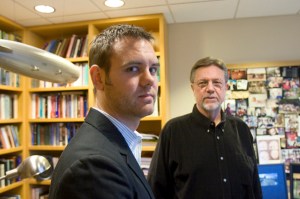
-
Campus & Community
In Milliseconds, Brain Zips From Thought To Speech
An unusual experiment is offering some tantalizing clues about what goes on in the brain before we speak. The study found that it takes about half a second to transform something we think into something we say. And three very different kinds of processing needed for speech are all happening in a small part of…
-
Campus & Community
Understanding the Anxious Mind
Jerome Kagan’s “Aha!” moment came with Baby 19. It was 1989, and Kagan, a professor of psychology at Harvard, had just begun a major longitudinal study of temperament and its effects. Temperament is a complex, multilayered thing, and for the sake of clarity, Kagan was tracking it along a single dimension: whether babies were easily…
-
Campus & Community
Is Happiness Catching?
Nicholas Christakis began taking a new look at this question in 2000 after an experience visiting terminally ill patients in the working-class neighborhoods of Chicago.
-
Campus & Community
For Best Results, Take the Sting Out of Criticism
This may come as a surprise, but I don’t like criticism. I prefer constant praise and approval from my friends, family and bosses.
-
Health
‘Super-recognizers’ are the ones who really will never forget a face
Some people say they never forget a face, a claim now bolstered by psychologists at Harvard University who’ve discovered a group they call “super-recognizers”: those who can easily recognize someone they met in passing, even many years later.
-
Science & Tech
Vocal mimicking, sense of rhythm tied
Researchers at Harvard University have found that humans aren’t the only ones who can groove to a beat — some other species can dance, too. The capability was previously believed to be specific to humans. The research team found that only species that can mimic sound seem to be able to keep a beat, implying…
-
Campus & Community
Newsmakers
Liu wins Wendell scholarship; Nye, Walt, and Ruggie recognized by Trip; Witzel receives recognition; CID awards Quadir prize; Koven-Matasy ’10 named Beinecke Scholar; Cheng named to USA Today All-USA College Academic Team; Satcher to give Richmond Lecture; Allison to receive NAS award
-
Campus & Community
Rudolf Arnheim
At a Meeting of the Faculty of Arts and Sciences on March 10, 2009, the Minute honoring the life and service of the late Rudolf Arnheim, Professor of Psychology of Art, Emeritus, was placed upon the records. Arnheim was a pioneer in the psychology of art with path-breaking books on visual perception and artistic creativity
-
Campus & Community
Brendan Maher, scholar, former GSAS dean, dies at 84
Brendan A. Maher, the Emeritus Edward C Henderson Professor of the Psychology of Personality in the Department of Psychology, died in his Durham, N.C., home on March 17, at the age of 84.





